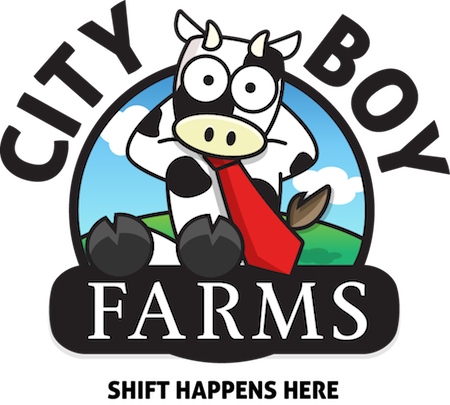The City Boy is Marshall Filler, born in Da Bronx, New York.
The Country Girl is Sarah MacLeod, born in the house her Papa built in Vesta, Washington.
The City Boy’s dream was to live in a golf course community, with ready access to entertainment, hospitals, grocery stores and the urban life.
The Country Girl’s dream was an 800-acre ranch in Montana with access only by horse or helicopter.
The compromise: City Boy Farms, LLC in central Virginia, consisting of 96 acres in five deeded parcels. The main house sits on a knoll in the middle of the property on a 50-acre parcel.
Our mutual objective: Create sustainable agri-business (with golf course) capable of generating the income to support the land and its improvements, to pay for the permanent residents’ overhead and for the labor necessary to produce the goods. At a minimum, it will be capable of ensuring a self-sufficient food source for all permanent residents. Optimally, the property will have power sources to be “off the grid” with the capability to “feed the grid”.
Egg creation and processing: City Boy Farms’ hens are provided lucky roosters, non-GMO feed and oyster shells to supplement a free range environment. Eggs are collected daily; a grease pencil is used to mark each one with that date; properly stored eggs will last from 6 weeks to 6 months. Most grocery store eggs are 4 to 6 weeks old when delivered.
Firewood: Seasoned wood from our timber is available in small bundles with kindling for a night’s warmth, half cords and cords. Please call for pricing, pick up or delivery.
Produce production: Our produce is planted and grown with sustainable methods; no non-organic herbicides and pesticides are used. We do use well-seasoned land and animal by-products, organic fertilizers, herbicides and pesticides. These methods do not create perfect-looking articles; our products taste better with more nutrients than picture-perfect items from grocery stores.
Baked goods and specialty items: The Country Girl is constantly experimenting with different flours, methods of baking, processing and preserving farm output. Value-added items include baked goods made with gluten and non-gluten flours (although processed in the same kitchen as the gluten goods), gazpacho and other cold and hot vegetable soups, as well as pickled produce such as beans, cucumbers and eggs.

